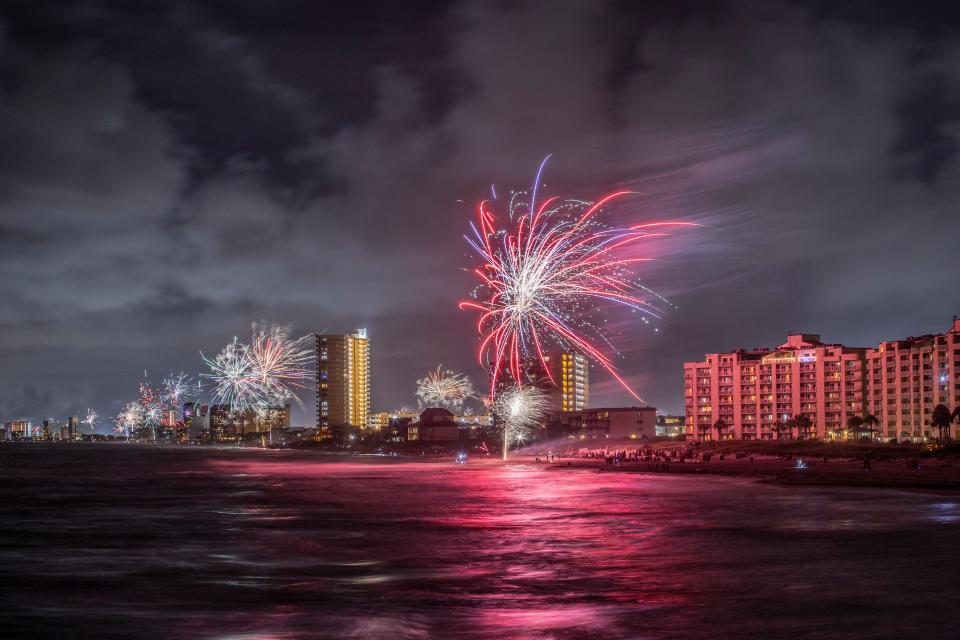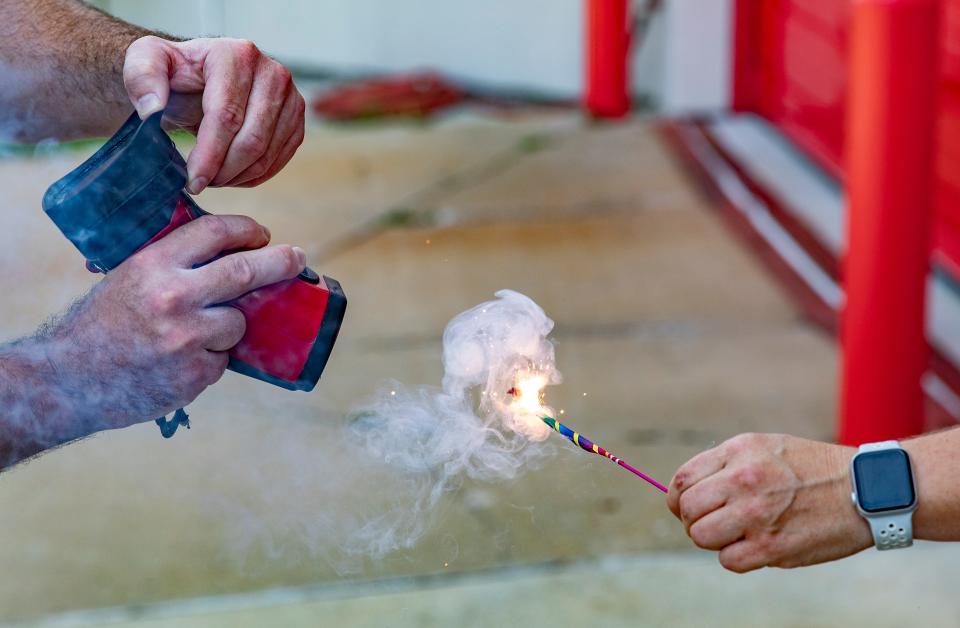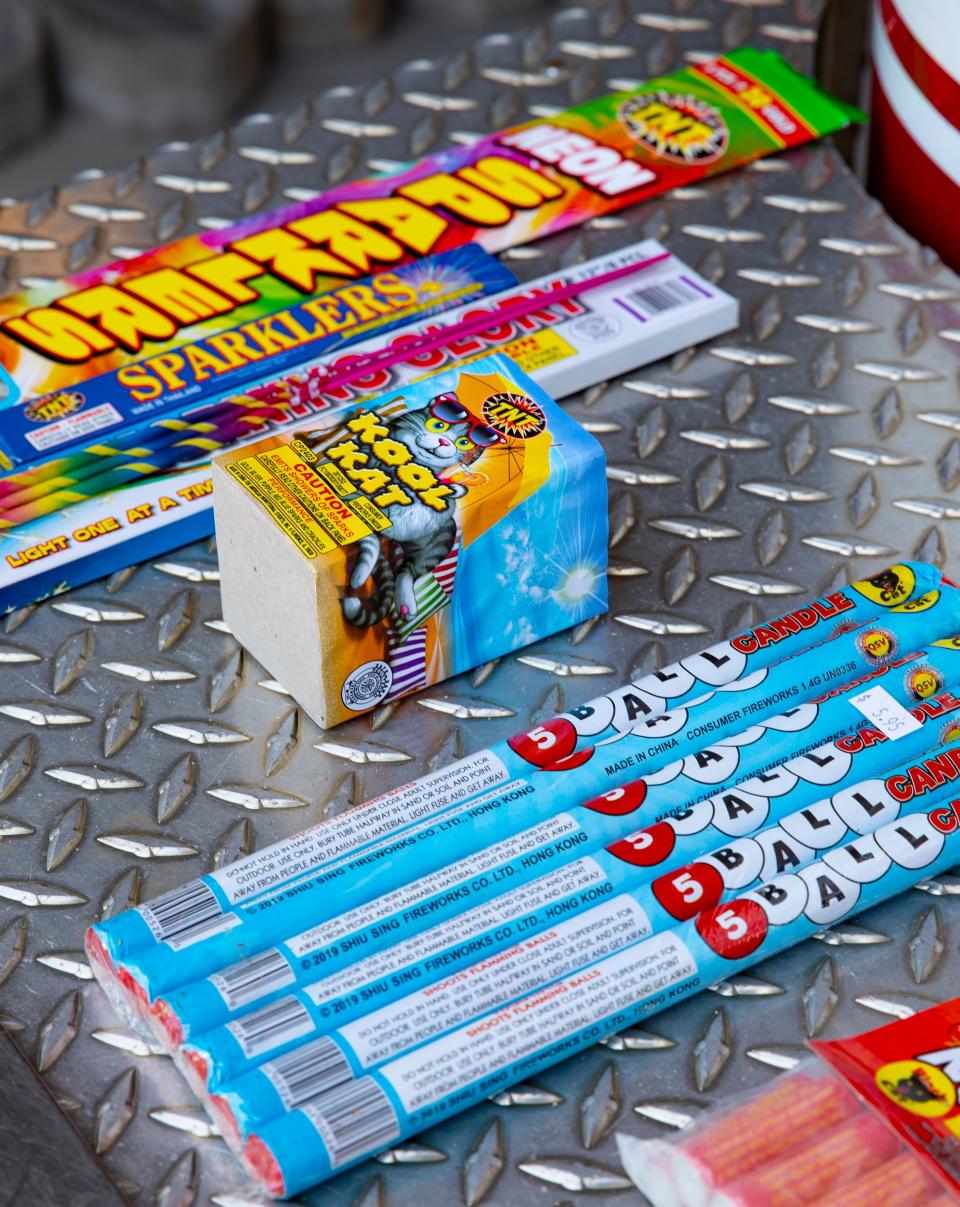Lighting fireworks this 4th of July? How to celebrate legally and safely in Bay County
EDITOR'S NOTE: This story has been updated to correct the spelling of Trent Poe.
BAY COUNTY — Thousands of Bay Countians plan to help light up the sky this Independence Day and officials want to ensure it’s done in the safest way possible.
According to local officials, the most common Fourth of July injuries are burns to celebrators lighting fireworks in their hands or standing too close to a lighted firework. Fire department officials provided tips and guidelines to ensure everyone has a safe and enjoyable holiday.

Panama City Fire Department Public Educator Crystal Price touched on the danger of common sparklers, which are usually purchased for children.
Fourth of July events: From parades to fireworks, here are 7 celebrations in Bay County
Summer reading adventure: Stroll through Panama City a page at a time at StoryWalk Downtown
“Sparklers are probably one of the biggest injuries we have each year because of the sparks coming off and burning children,” Price said. “It’s important for individuals not to leave their kids unattended and closely monitor them to prevent any injury.”

Sparklers should be used only under close adult supervision. While often considered a “safe” firework for youngsters, the tip of a sparkler burns at 1,200 degrees or higher, which can cause third-degree burns.
With many celebrations and fireworks shows scheduled next week in Bay County, PCB Fire Department Lt. Paramedic Trent Poe said the department encourages individuals and families to visit public displays instead of using them for personal amusement.
“Enjoying these fireworks displays are safer and cheaper, so we highly recommend that individuals go to watch these shows instead of buying their own,” Poe said. “These fireworks are bigger than what’s found in stores and done by professionals so it doesn’t get any simpler than that.”
Although it's not guaranteed that people will adhere to that request, it's critical to obey the laws and keep safe while celebrating this holiday.
General safety tips when using firework
Be prepared when using fireworks
Never use homemade and/or illegal fireworks.
Clear away dry vegetation and debris from the area before igniting fireworks.
Always have a water source, full bucket of water and/or fire extinguisher close at hand.
What to know while celebrating
Be sure those watching are at a safe distance from where fireworks are being ignited.
Never carry fireworks in your pocket or shoot them off in metal or glass containers.
Do not allow children to play with or light fireworks.
If a firework does not light or fire, let it sit for at least 20 minutes then carefully place it in a bucket of water.
Cleaning up fireworks
Make sure fireworks are cold before handling and place all used fireworks into a bucket of water.
Be sure matches, lighters and any unused fireworks are out of the sight and reach of children before, during and after your celebration.
In case of burn
Call 911
Place a wet, cool towel or cloth on the affected area.
Pet safety
Keep pets away from lit fireworks at all times, including your own backyard, as some will chase after the bright moving objects and are at risk to be burned or blinded in the process.
Keep pets as comfortable as possible, allow them in a room with familiar noises
Many fireworks contain substances that are toxic if ingested, so be sure to keep unlit fireworks out of reach.
Ensure that pets are wearing current identification tags and make sure your current contact info is recorded with the vet clinic or shelter that implanted the microchip.

What’s legal in Florida?
All devices must be approved and listed by State Fire Marshal Jimmy Patronis. In 2020, the Florida Legislature passed a bill permitting the use of fireworks for three designated holidays: Independence Day, New Year’s Eve and New Year's Day. Any use of fireworks outside of those dates could result in fines up to $1,000. An exception exists for the use and sale of fireworks for certain public fireworks displays.
Allowed: A shower of sparks upon burning, do not contain any explosive compounds, do not detonate or explode, are handheld or ground-based, cannot propel themselves through the air, and contain no more than 100 grams of the chemical compound that produces sparks upon burning. Any device not included in the list of approved items is prohibited, except smoke devices, trick noisemakers, party poppers, booby traps, snappers and trick matches.
Prohibited: Firecrackers, torpedoes, skyrockets, Roman candles, day go bombs, and any fireworks containing explosive or flammable compounds.
This article originally appeared on The News Herald: July 4th: Bay County officials give tips on fireworks safety

